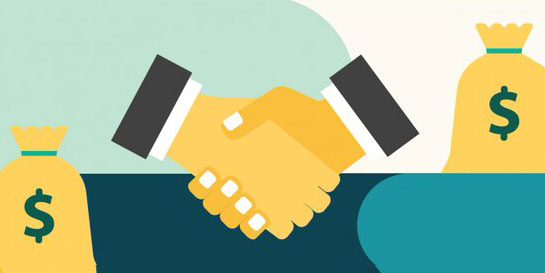Your Easy Guide to Planning for Out-of-Pocket Healthcare Costs
May 18, 2024 By Susan Kelly
Healthcare expenses can hit you hard, especially when unexpected. From routine check-ups to emergency treatments, the costs can quickly add up. But fear not! With a bit of foresight and planning, you can tackle these out-of-pocket expenses without breaking a sweat.
Understanding Out-of-Pocket Healthcare Costs
Out-of-pocket healthcare costs are those expenses that you must pay directly, often at the time of service, without any contribution from insurance. These costs typically include deductibles, copayments, coinsurance, and any services or treatments not covered by your insurance plan.
It's important to recognize the distinction between these out-of-pocket expenses and what your insurance will cover. By understanding the nature of these costs, you can better anticipate and plan for them in your budget.
Assessing Your Health Needs
To effectively plan for out-of-pocket healthcare costs, it's crucial to evaluate your unique health needs. Consider factors such as your medical history, any ongoing health conditions, and any upcoming medical procedures or treatments. For example, if you have a chronic condition that requires regular medication or monitoring, you'll need to budget for these ongoing expenses.
By taking stock of your health needs, you can more accurately estimate potential out-of-pocket costs and ensure that you're financially prepared.
Reviewing Your Insurance Coverage
Understanding the specifics of your insurance coverage is essential for managing out-of-pocket healthcare costs. Familiarize yourself with your insurance policy's deductible, copayment, and coinsurance requirements, as well as any coverage limits or exclusions.
This information will help you determine how much you'll be responsible for paying out of pocket for various medical services and treatments. Additionally, be aware of any changes to your insurance coverage, such as updates to your policy's terms or network providers, which may impact your out-of-pocket expenses.
Building an Emergency Fund
One effective strategy for preparing for unexpected healthcare costs is to establish an emergency fund specifically earmarked for medical expenses. This fund serves as a safety net for unanticipated medical emergencies or costs, and it should ideally be large enough to meet your insurance deductible and out-of-pocket limit.

Start by setting aside a portion of your income each month into a dedicated savings account, gradually building up your emergency fund over time. Having this financial cushion in place can offer peace of mind and protect you from financial hardship in the event of a medical crisis.
Utilizing Health Savings or Flexible Spending Accounts
If you have access to a Health Savings Account (HSA) or Flexible Spending Account (FSA) through your employer or insurance plan, consider taking advantage of these valuable savings tools. Contributions to qualified medical expenses can be made with both HSAs and FSAs, which lowers your taxable income and lowers your overall healthcare costs.
A variety of medical costs, such as prescription drugs, deductibles, copayments, and certain medical procedures, can be covered by contributions to these accounts. To optimize your potential savings on out-of-pocket medical expenses, make the most of your contributions to these accounts.
Shopping Around for Healthcare Services
When it comes to managing out-of-pocket healthcare costs, it pays to be a savvy consumer. Take the time to research and compare prices for medical services and treatments, including doctor's visits, diagnostic tests, and prescription medications. Prices for the same services can vary significantly between providers, so it's worth shopping around to find the best value.
Look for healthcare facilities that offer transparent pricing and are willing to work with patients to manage costs. Additionally, inquire about generic medication options, which are often more affordable than brand-name drugs and can help reduce your out-of-pocket expenses.
Negotiating Payment Plans
If you're facing a large medical bill that you're unable to pay in full upfront, don't hesitate to negotiate a payment plan with your healthcare provider. Many healthcare facilities are willing to work with patients to establish manageable payment schedules tailored to their financial circumstances.
Be proactive in discussing your situation with your provider and exploring your options for payment assistance. By communicating openly and honestly about your financial needs, you may be able to alleviate some of the financial burden associated with out-of-pocket healthcare costs.
Staying Healthy and Preventative
Investing in your health through preventive care can help reduce your overall healthcare costs in the long run. Focus on maintaining a healthy lifestyle by eating a balanced diet, exercising regularly, getting enough sleep, and managing stress.
Schedule regular check-ups and screenings with your healthcare provider to detect any potential health issues early on when they may be easier and less expensive to treat. By prioritizing preventive care and taking proactive steps to safeguard your health, you can minimize your risk of developing costly medical conditions and avoid unnecessary healthcare expenses.
Revisiting Your Plan Regularly

Finally, it's important to regularly review and adjust your financial plan for managing out-of-pocket healthcare costs as needed. Healthcare needs can change over time due to factors such as changes in your health status, shifts in your insurance coverage, or unexpected medical expenses.
Regularly review your insurance policies, savings plans, and budget to make sure they still reflect your financial objectives and present situation. By staying proactive and adaptable, you can effectively manage out-of-pocket healthcare costs and maintain your financial well-being over the long term.
Why Out-of-Pocket Healthcare Costs Are Important?
Out-of-pocket healthcare costs play a crucial role in ensuring individuals have a comprehensive understanding of their financial responsibilities in managing their healthcare needs. Unlike expenses covered by insurance, these costs directly impact individuals' wallets, influencing their budgeting decisions and financial well-being.
Understanding and planning for out-of-pocket costs is essential for individuals to effectively manage their healthcare expenses, avoid unexpected financial burdens, and maintain access to necessary medical care. By recognizing the significance of out-of-pocket costs, individuals can make informed decisions about their healthcare utilization, savings strategies, and overall financial health.
The Bottom Line!
In conclusion, planning for out-of-pocket healthcare costs doesn't have to be overwhelming. By understanding your health needs, reviewing your insurance coverage, and taking advantage of savings opportunities, you can effectively manage these expenses. Stay proactive, stay informed, and stay healthy!

What Is The Average Cost to Paint a House in 2023: An Overview

How Do You Get an Income Share Agreement for College: Your Complete Guide

Is the Amex Gold Card Worth It? My Six-Month Review

Do Dentures Get Paid For By Medicare

ATM Operations Demystified: Understanding Its Functionality

BECU rolls out same-day payments

How to Get Unemployment Pay

How to Refinance Your House - A Comprehensive Guide

All You Need To Know About Real Estate Counteroffers

